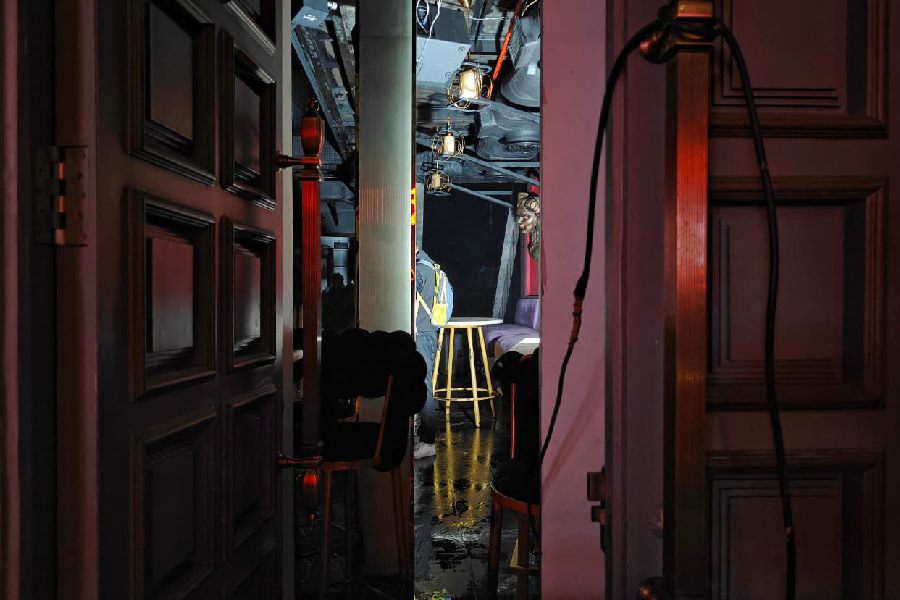 |
| BOAT FEAT: Julian Crandall Hollick recalls his voyage down the river. Picture by Amit Datta |
India fascinates him, like it does many others from the West. And to know this country of multiple religions and cultures better, Julian Crandall Hollick had decided to set sail on the Ganga.
The Massachusetts-based documentary-maker for BBC and NPR has been associated with India since 1986.
But rounds of researches and extensive travel across the country have left him with a humble realisation: that he doesn?t know much about ?the lifeline? of the country.
?You cannot understand a river only by seeing it from the window of a five-star hotel. So I decided on the odyssey,? the 56-year-old told Metro.
Hollick set sail from Hardwar on October 15 and reached Calcutta on December 27. His entourage comprised his wife, a professor from Patna, a doctor-environmentalist from Rajasthan, four oarsmen and a cook. A geologist and his two assistants joined the expedition later. Their equipment was carried in a Scorpio, which travelled the same distance by road.
From Hardwar to Patna, the team had to travel in a small boat, which helped them negotiate better the low navigability of the stretch. From Patna, the team sailed in a 27-ft country boat.
The idea of sailing on the Ganga might have been impulsive, but the planning was certainly not. ?It took me two years to plan the trip. And looking back, it seemed to be a miracle that the plan worked out without a single hitch,? Hollick recalled.
The two-month trip, however, had not been a smooth-sail for Hollick and his team. For, a major part of the voyage was through dacoit-infested Bihar.
Keeping a low profile during the entire journey helped them beat the thugs and overcome other perils.
Speaking on their daily routine, Hollick said a normal day would begin with the team hopping into the boat at 6 am.
Breakfast was served on board around 9. Between breakfast and lunch at 2 pm, Hollick would interview his co-travellers and take several photographs.
By 5 in the evening, they would anchor and take shelter in a temple or a dharamshala. ?By 8 pm, we would retire. Nothing can be as tiring as sitting in a boat all day and doing nothing,? recounted Hollick.
Enchanted with the changing moods of the Ganga, Hollick has decided to make a radio-documentary on the river, based on the findings of the voyage and his observations.
?The vast expanse of the water fascinated me. The river changes its moods by the minute. And it doesn?t care about the man-made obstacles such as dams,?said Hollick.
The trip also helped him have a first-hand feel of how the life-giver of one of the most ancient civilisations of the world is being polluted. ?People can do without throwing garbage or plastic packets in the river,? he pointed out.
The other thing that struck him was the lack of any human or commercial activity on the river. ?For a thousand kilometres, I could not spot any human being. It was only after Farakka that I saw both human beings and goods being ferried.?











